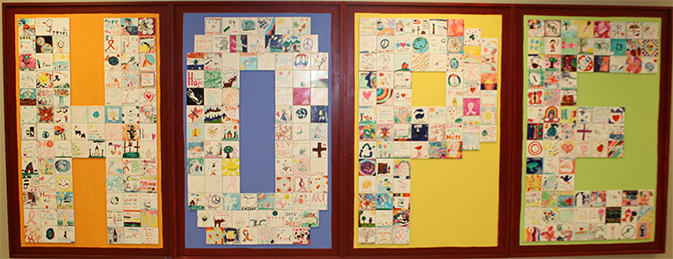by Mary Peterson, Housing Specialist
There is no doubt. The situations that women are bringing into maternity homes, pregnancy centers, and adoption agencies have grown more and more complex. Addiction and drug seeking behaviors have become more of a regular occurrence often in conjunction with childhood trauma, criminal histories, sexual abuse, and more.
In an effort to think deeply about how to best serve women who wrestle with addiction, the Leadership Council of the National Maternity Housing Coalition sat down with leaders from Amethyst, a healing community for drug and alcohol dependent women, located in Columbus, Ohio.
The Amethyst model focuses on teaching women how to support one another, how “to do community” as Ginnny O'Keeffe, the Founding CEO noted. This emphasis on relationship is deep in the origins of Amethyst. O'Keeffe recalled the founding of Amethyst as a community of visionary women who came together "as they were getting well" to support the unique needs of other women in recovery.
Sara Niemeyer, the Director of Clinical Services, brought attention to one of these unique components: "The drive to be a good mother is deep in women, even if she has struggled as a mother due to her addiction" she described. "In fact, one of the final aspects of denial that a woman in recovery must face is her faults as a mother." O'Keeffe chimed in, "That can be used for good though! If a woman won't enter a program for her own sake, she may be convinced to enter for the sake of her children."
Amethyst has long been aware of the relationship between trauma and addiction and keeps up to date on research and new findings. Outlining the stages of the Amethyst program, Niemeyer noted that women may be able to address addiction issues (i.e. relapse plan, knowledge of triggers) more quickly than they can address traumas. "Self-regulation techniques allow women to control the physiological response that kicks in when trauma is triggered in women, " she taught us. "Self-regulation skills like deep breathing and stretching are extremely effective at getting women out of freeze, flight, or fight mode." "For women, addressing grief and loss is the gateway to addressing traumas," O'Keeffe added. "As women we have to learn to feel our feelings in healthy ways."
Pregnancy help organizations often wrestle with what they can do without skilled practitioners in addiction recovery on staff. When that question was posed to the Amethyst team, O'Keeffe was quick to respond, "Clinicians, peers in recovery, supportive individuals...ALL have a role in recovery. It’s a team—use whatever tools you can!"
The discussion begun with the powerful testimony of one of the Amethyst clients. She began by sharing the events of her childhood and summed up by saying, "I lost my voice." It was evident to all in attendance that she had re-found her voice at Amethyst, speaking of her future with clarity and hope. In her story, the housing leaders in attendance heard echoes from the situations of many women they had served. And they carried home a message of hope.
To learn more about this program, please refer to their website: www.amethyst-inc.org/.
Additional Advice from the Staff of Amethyst
- Be aware of pain medication after birth as a problem area for those with addiction.
- Get releases from all past treatment programs as part of intake.
- Women don’t do “street homelessness” the same way that men do. They often find multiple people to bunk with.
- Often the biggest fear in entering a treatment program for the mother is that she will lose her children. A key message to communicate is “we can help you keep your children.”
- Encourage and provide opportunities for women to continue to come together as a community once they leave the program.
- Smoking triggers the same pleasure center in the brain as does alcohol and drugs and thus, is not allowed and treated as part of treatment at Amethyst. The program provides nicotine replacement.
- Have an attitude of “what has happened to you?” rather than “what did you do?” Much of women’s trauma is related to authority figures. As women are interacting with authority figures, it may be a trigger.
- If a woman doesn’t fully report traumas in her life, it may be that she is not sharing due to trust issues OR that she does not remember.
- The clients are the best source of information on new trends in drug-seeking behaviors and what is being used.

